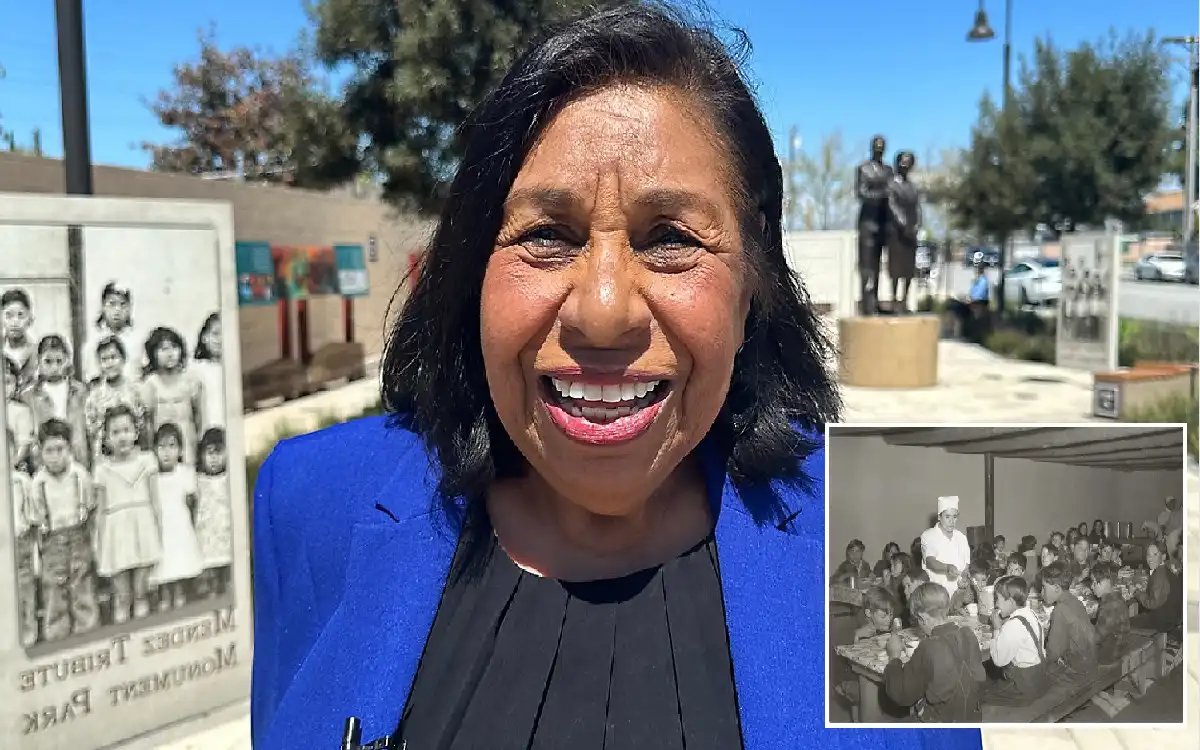|
Getting your Trinity Audio player ready...
|
In a Breaking News development for California’s educational landscape, the story of the Mendez family’s fight against school segregation may soon become a mandatory part of the state’s public school curriculum. This move, which has been years in the making, seeks to highlight a pivotal yet often overlooked chapter in the struggle for educational equality in the United States.
The Mendez v. Westminster Case: A Prelude to Brown v. Board of Education
The Mendez Family battle began in 1943 when Gonzalo and Felicitas Mendez attempted to enroll their children in an all-white school in Westminster, Orange County. Their children were turned away due to their Mexican heritage, despite being American citizens [1]. This rejection sparked a legal challenge that would eventually lead to the landmark case of Mendez v. Westminster.
Dr. Maria Elena Cruz, a historian at the University of California, Irvine, explains the significance of the case:

Mendez v. Westminster was a precursor to Brown v. Board of Education. It successfully challenged the ‘separate but equal’ doctrine in California, paving the way for the national desegregation of schools. [2]
The Path to Curriculum Integration
The push to include the Mendez Family case in California’s curriculum has been a long-standing effort, championed by educators, civil rights activists, and the Mendez family themselves. Sylvia Mendez, who was at the center of the original case as a child, has been a vocal advocate for this educational initiative.
It’s not just about our family’s story,
Sylvia Mendez stated in a recent interview.
It’s about recognizing the contributions of all communities in the fight for equality. Our children need to know this history to understand where we’ve come from and where we still need to go. [3]
Legislative Support and Challenges
The proposed curriculum change has garnered significant support in the California State Legislature. Assembly Bill 824, introduced by Assemblymember Wendy Carrillo, seeks to mandate the inclusion of the Mendez case in the state’s history and social science curriculum [4].
However, the path to implementation has not been without challenges. Budget constraints and debates over curriculum priorities have slowed the process. Dr. Robert Garcia, an education policy expert at Stanford University, notes:
While there’s broad agreement on the importance of this history, practical considerations like textbook revisions and teacher training require careful planning and resources. [5]
Impact on Students and Society
Proponents argue that including the Mendez case in the curriculum will have far-reaching benefits. It provides a more comprehensive view of civil rights history, highlighting the interconnectedness of different communities’ struggles for equality.
Maria Blanco, executive director of the University of California Immigrant Legal Services Center, emphasizes the contemporary relevance:
Understanding the Mendez case helps students see the ongoing nature of the fight for educational equity. It’s not just history; it’s a continuing conversation about access and opportunity. [6]
Looking Ahead: Implementation and Expectations
As the California Department of Education works on finalizing the curriculum changes, educators are preparing for the potential implementation. Professional development workshops and resource creation are already underway in anticipation of the new content.
Dr. Lisa Chen, a curriculum specialist with the Los Angeles Unified School District, is optimistic about the impact:
This addition to our curriculum will enrich students’ understanding of California’s diverse history. It’s an opportunity to engage in critical discussions about equality, justice, and civic responsibility.[7]
A Step Towards Inclusive Education
The potential inclusion of the Mendez Family story in California’s school curriculum represents a significant step towards a more inclusive and comprehensive education. By shining a light on this crucial piece of civil rights history, California aims to equip its students with a deeper understanding of the ongoing struggle for equality.
As Sylvia Mendez aptly puts it:
Education was at the heart of our family’s fight decades ago. Today, it remains the key to building a more just and equitable society. [3]
The journey of the Mendez family, from a local school dispute to a potential statewide curriculum mandate, serves as a powerful reminder of the impact that individual actions can have on shaping the course of history and education.
For More News Update Visit California News



